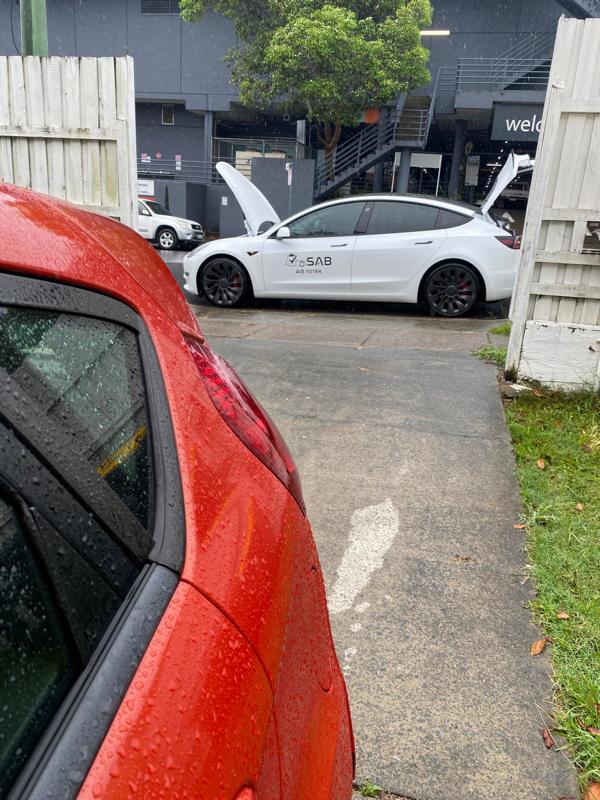Purchasing a used car is an exciting yet daunting process, and understanding the ins and outs of a Roadworthy Certificate (RWC) is crucial to making an informed decision. This certificate, sometimes referred to as a roadworthy inspection, is an official document that confirms a vehicle meets the minimum safety standards required for it to be legally driven on the road. Here’s a comprehensive
What is a Roadworthy Certificate
A Roadworthy Certificate (RWC) is an official document certifying that a vehicle meets the minimum safety standards required by law for it to be driven on public roads. Issued by licensed inspectors, it confirms that key components of the vehicle, such as brakes, lights, tires, and steering, are in proper working order. The inspection ensures that the vehicle is safe for both the driver and other road users. The RWC is essential for vehicle registration and transfer of ownership in many regions. It is important to note that an RWC does not cover the overall condition or performance of the vehicle beyond these safety aspects.

Why is it Important for Car Buyers
For car buyers, the Roadworthy Certificate is a crucial tool for ensuring the vehicle’s safety and legality. It confirms that the car has passed an inspection and meets essential safety standards, reducing the risk of acquiring a vehicle with hidden issues. In many jurisdictions, an RWC is necessary for transferring ownership, making it a key aspect of the purchasing process. A valid RWC can also be used as leverage during negotiations, as it demonstrates that the vehicle has been recently inspected and deemed roadworthy. However, buyers should remember that while an RWC provides safety assurance, it does not cover all potential mechanical or cosmetic issues.
What Does an RWC Inspection Cover
An RWC inspection focuses on critical safety components of the vehicle to ensure it meets regulatory standards. This includes checking the effectiveness and wear of brakes, the functionality of lights and indicators, and the condition of tires. Inspectors also evaluate the steering and suspension systems for any issues affecting handling and stability. The windscreen is examined for cracks or chips that could impair visibility, and seatbelts are tested for proper function. The inspection primarily addresses safety rather than the vehicle’s overall mechanical performance or cosmetic condition, meaning it does not cover all possible issues that might arise.
How to Verify the Validity of an RWC
To verify the validity of a Roadworthy Certificate, first check the issue date to ensure it is current, as RWCs are typically valid for a limited period, such as 30 days. Confirm that the certificate was issued by a licensed and authorized inspector or inspection station, as only certified entities can issue a legitimate RWC. Review the certificate details to ensure they match the vehicle’s condition and specifications. Consider having an independent mechanic conduct a separate inspection to confirm the RWC’s findings. This extra step can provide additional assurance of the vehicle’s safety and help verify the accuracy of the RWC.
What if the Car Doesn’t Have a Valid RWC
If the car you are interested in does not have a valid Roadworthy Certificate, you have several options. You can request that the seller obtain a current RWC before completing the purchase, ensuring that the vehicle meets safety standards. Alternatively, use the lack of an RWC as a negotiating point to lower the purchase price or ask the seller to cover the cost of obtaining one. If the seller is unwilling to provide a valid RWC or address safety concerns, it may be prudent to reconsider the purchase, as this could indicate potential issues with the vehicle that need to be addressed.
Why is it Important for Car Buyers
For car buyers, the Roadworthy Certificate is a crucial tool for ensuring vehicle safety and legality. It provides assurance that the car meets the necessary safety standards, which helps mitigate the risk of buying a vehicle with hidden safety issues. In many jurisdictions, an RWC is a legal requirement for transferring ownership, making it a critical component of the buying process. Additionally, a valid RWC can strengthen your negotiating position by confirming that the vehicle has been inspected and deemed roadworthy. However, while it offers some peace of mind, it is not a comprehensive guarantee of the car’s overall condition.
What Does an RWC Inspection Cover
An RWC inspection covers key safety components of a vehicle to ensure it meets regulatory standards. The inspection includes checks on brakes, to assess their effectiveness and wear, and lights, to confirm that all are functioning correctly. Tires are evaluated for tread depth and condition, while steering and suspension systems are inspected for any issues affecting vehicle handling. The windscreen is checked for cracks or chips that could impair visibility, and seatbelts are tested for proper functionality. This inspection focuses on safety rather than cosmetic or performance issues, meaning it does not address the car’s overall mechanical or aesthetic condition.
How to Verify the Validity of an RWC
To verify the validity of a Roadworthy Certificate, start by checking the issue date. RWCs typically have a limited validity period, often 30 days, so ensure the certificate is current. Confirm that it was issued by a licensed and authorized inspector or inspection station, as only certified entities can provide a legitimate RWC. Additionally, review the RWC for any details about the vehicle and the inspection results. Cross-check these details with the car’s condition and consider having an independent mechanic perform a separate inspection. This extra step ensures that the vehicle truly meets safety standards and that the RWC is accurate.
What if the Car Doesn’t Have a Valid RWC
If the car you are interested in does not have a valid Roadworthy Certificate, you have several options. First, you can request that the seller obtain a current RWC before completing the purchase. This ensures that the vehicle meets safety standards and reduces potential risks. Alternatively, you may use the lack of an RWC as a negotiation point to lower the purchase price or ask the seller to cover the cost of the inspection. If the seller is unwilling to provide an RWC or address safety concerns, it may be wise to reconsider the purchase, as it could indicate potential issues with the vehicle.
Common Misconceptions About RWCs
One common misconception about Roadworthy Certificates is that they act as a warranty for the vehicle. In reality, an RWC only certifies that the vehicle meets minimum safety standards at the time of the inspection and does not guarantee the vehicle’s overall condition or future performance. Additionally, some buyers mistakenly believe that an RWC covers all potential issues with the vehicle, such as wear and tear or cosmetic damage. It’s important to remember that while an RWC is a valuable tool for ensuring safety, it does not replace a comprehensive mechanical inspection or a thorough review of the vehicle’s history and condition.
The Process of Getting an RWC
Obtaining a Roadworthy Certificate involves several steps. First, locate a licensed inspector or authorized inspection station in your area. Schedule an appointment for the inspection, ensuring that the vehicle is in a clean and functional state to facilitate the process. During the inspection, the vehicle will be evaluated for compliance with safety standards. After the inspection, review the RWC report carefully to understand any issues that were identified. If the vehicle passes, the certificate will be issued. If there are issues, they must be addressed before an RWC can be obtained. Completing this process helps ensure that the vehicle is safe and compliant with local regulations.
Conclusion
Navigating the roadworthy certificate process can be complex, but understanding its essentials is crucial for car buyers. Ensuring that a vehicle has a valid roadworthy certificate not only confirms that it meets safety and regulatory standards but also provides peace of mind for your investment. By verifying this certification, you can avoid unexpected repair costs and potential safety issues, making your car purchase experience smoother and more reliable.
At SAB Mobile Roadworthy Certificate Brisbane, we are committed to helping you through every step of this process. Our experienced team in Brisbane is dedicated to providing prompt and thorough inspections, ensuring that your vehicle meets all necessary requirements. Trust us to assist you in making informed decisions and driving safely on the road.
